Home Backup Generator
Backup generators are the most convenient way to have the power to fuel your activities even in remote places. Most often, your power sources are connected to main power lines whose operation might be unpredictable at times to the extent that interruption could happen anytime and most often without warning. This is such a frustrating scenario especially if you are in the process of doing something that needs to be urgently done. Various inconveniences can also result from sudden power loss including curtailed service provision, unfinished on-line transactions, and even delays in some activities. On the surface work interrupted because of unwanted shortage in power results to great looses too.
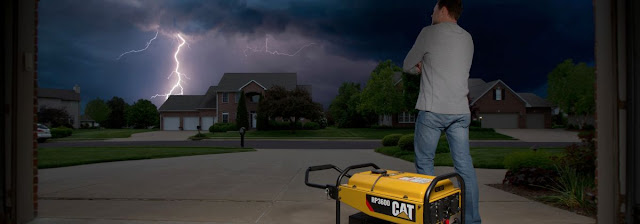 |
| Home Backup Generator |
Emergency Home Electric Generators Explained
With no electricity, no heat, and without gadgets and electrical appliances, homeowners during a power blackout can experience frozen pipes, spoiled food, and loss of running water. So in snow storm areas, where a devastating weather knocks out power with a grim result, the comfort of an emergency home electric generator is very common in coastal regions where snow storms share power grids throughout the year.
Emergency home electric generators can power part of a household load during an electrical outage, but the only downside is that they are loud, hard to transfer and powered by gasoline, and limit the number of electrical appliances that can run at the same time. A permanent backup power system can run off the home's diesel supply and can be directly wired into the household circuit panel. These systems provide a seamless switch from utility service to backup power.
Some manufacturers design the integrated systems of the emergency home electric generators and distribution panels in addition to the generator set itself to provide a more efficient energy source.
Installation of an emergency home generator should be done by experts. The wiring should be transferred to the switch and circuit board according to certain specifications, and you should seek out the help of a plumber to set the hoses to connect the generator set to your household's power supply.
Genuine manufacturers of emergency home generators usually oversee the installation process, and most will secure the permit and schedule of the electrical inspection as part of their services. Most of them include an inspection as part of the package deal along with the generator set itself, a necessary permit and the installation of the system.
Note: Portable inverter generator is also applicable as a backup generator. In general, today's backup generators are all inverter generators. Find out more information: Portable Inverter Generators
What size generator do I need for home backup?
You can run the most critical household equipment with a generator rated at 5,000 to 7,500 watts. These include things like a well pump, refrigerator and freezer, and lighting circuits. A generator with around 7500 running watts can run all these appliances at once. For RV, a 3000 – 4000-watt generator would be ideal.
Before you go shopping for home generators, you should make sure that you know the right power size that you need to supply your home with enough electricity during emergency situations. In this case, it's always recommended to ask help from skilled electrical contractors. But there are also sizing guides available over the internet. Just don't forget that when buying permanent home standby generators, cheap units are never an option.
What is the best home backup generator?
There are many different generators out there, so finding the right one takes a little leg work. The most important thing figure out before you shop is how much electricity you need.
Today, when developing a home emergency kit, many people are now including electric generators. They can help get you through an emergency or power outage. When not in use, they're small enough to stow in your basement or the garage.
Finding a generator that is inexpensive and meets your requirements can be challenging. So, as we said, the first step in selecting the right electric generator is to figure out how much electricity it will take to run your home. As a rule of thumb, look at generators that create at least 3000-7.500 watts of electricity. A home power generator of this size should be able to run your lights as well as major appliances such as your refrigerator.
The best home backup generator:
- Gasoline generator mute 3 kW car with ice cream machine car air conditioner NK-3500i
- 3KW gasoline generator portable open frame frequency conversion single phase 220V
- Power Generator 220V High-Power 4KW/KW Power Outage Emergency Chongqing Small Gasoline Mute Digital Frequency Conversion
- 40kw ricardo electric starting single phase home backup generator
- Home Backup Generator
If you can afford to go larger, you may want to consider an electric generator that creates 10,000 watts or more. These heavier-duty generators can handle most of the demands of your home. The only downside is they can get extremely pricey.
For people with little budget - These 6 best backup generators can help you weather any storm:
Arrange and Thumbnails | Generator Name | Wattage | Price |
|---|---|---|---|
Portable Inverter Generator Gas | 1000W | ||
Portable Inverter Generator Gas | 2400W | ||
Portable gasoline generator | 1000W | ||
Wind & Solar | Max: 600W | ||
Wind Power | Max: 500W |
Conditions for living off the grid (off grid) when using the generators on:
- The capacity of the generator is greater than the total consumption of electrical appliances in the house.
- Cheaper than buying electricity from utility companies.
- Uninterruptible power supply - no interruption in all weather conditions
An alternative to permanent home standby generators
There are several different models but the basic concept is simple. The home standby generator becomes a permanent fixture, installed outside and hooked up to your natural gas lines or propane tank, no gas tank to fill or any need to get out in the bad weather to dig it out of the garage. They have sensors so that when the power goes off they automatically switch on whether you are there or not. And once power is restored they shut themselves off. Unlike portable generators they are always there when you need them ready to provide your home and family with power without any human intervention. Nothing to move, no power cords and no gas tanks to fill make the home standby generator a must have for any homeowner.
Alternative to permanent home standby generators:
Plan of Homemade AC Generator:
✔ The Real Nature of Tesla AC Generator
✔ Combination of induction motor and alternator
✔ Combination between generators
✔ Or maybe called Overunity for the system. Mother Nature doesn't care about people calling or naming phenomena. Overunity or Free Energy, or Zero Point Energy (ZPE) are just a few different words
✔ The Real Nature of Tesla AC Generator
Generates Energy-On-Demand: Easy Power Plan Will Change Our World Forever
✔ Combination of induction motor and alternator
✔ Combination between generators
✔ Or maybe called Overunity for the system. Mother Nature doesn't care about people calling or naming phenomena. Overunity or Free Energy, or Zero Point Energy (ZPE) are just a few different words
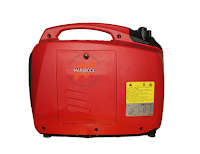
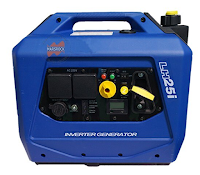

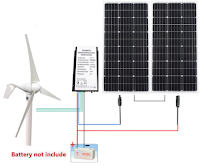
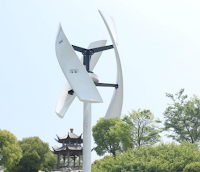
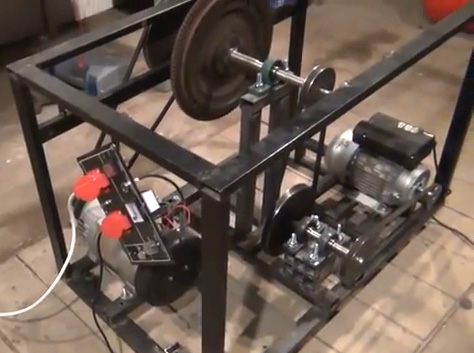



Post a Comment